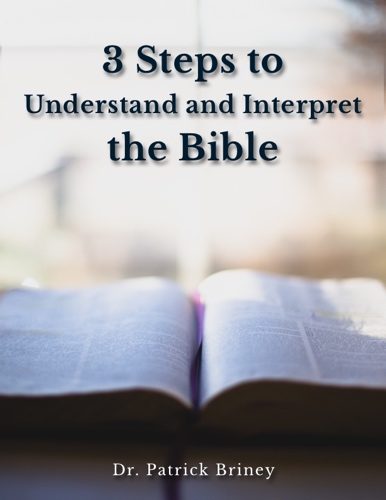The Bible presents the local church as being a very valuable resource to Christians for growth, maturity, training, edification, and serving. However, men have devised a doctrine that minimizes the importance of the local, visible church that subsequently undermines the work of Christ. This doctrine is called the universal, invisible church. This universal church doctrine is often misapplied to the family of God.
The Bible uses the Greek word ecclesia when referring to the church.
A careful study of the word ecclesia reveals that the word church in the Bible only refers to a local gathering of saints.
The noun ecclesia is made up of two Greek words, the preposition ek, meaning “out,” and the verb kaleo, meaning “to call” or “to summon” (Vincent, I, 93). The classical usage of ecclesia was applied to describe a calling out of people from their homes (Robertson, 174).
In defining ecclesia, Liddell and Scott give the illustration of
“an assembly of the citizens summoned by the crier” (Scott, 206).
The people would gather together as an assembly, or ecclesia, to participate in a certain matter. Therefore, the word ecclesia used in classical Greek referred to a local assembling of people as a result of being summoned together for some purpose.
For the Greeks, ecclesia was never used to refer to a universal entity, visible or invisible. Rather, it was used to refer to a local gathering of people. To use the word ecclesia in reference to a universal church is an errant translation and understanding.
Christ calls or summons all Christians to be a part of one of His local churches. In fact, the Great Commission makes this very clear by requiring that Christians be baptized.
The Great Commission of the church in Matthew 28:19–20 is
Go ye therefore, and teach all nations, baptizing them in the name of the Father, and of the Son, and of the Holy Ghost:
Teaching them to observe all things whatsoever I have commanded you: and, lo, I am with you alway, [even] unto the end of the world. Amen.
The Apostle Peter commanded a group of Christians to be baptized. Those who participate in a local assembly make up what is called the church. Thus, the church is an entity within the family of God. It is composed of Christians who gather together in local assemblies that meet the criteria of being Christ’s church.
This is similar to the voluntary military draft. The government calls upon the people to enlist. Those who do are trained and equipped to fulfill the job of defending our country.
This does not mean that those who do not join the military are any less American, or that they do not know how to fight and use a weapon. But, obviously, we cannot count on a disorganized, well-meaning group of Americans to defend us. Some will be helpful, but overall, it wouldn’t work.
Likewise, Christ has organized an institution designed to train and equip spiritual soldiers. Christ calls them out of the world, the world’s culture, values, and purposes. He calls them to gather together, to be distinct and representative of His ways, His message, and His ideals. He summons all Christians to participate. Many do not. Why?
Many of these want to serve Christ. But they will not choose to serve Him in a local church because they are confused about the Biblical doctrine of the church. Some prefer to fight the good fight their own way, while others prefer not to fight at all. Others have been duped into thinking there is no war, and still others have been convinced that they are in the army, that is, the universal, invisible army. Of course, this exists only in the minds of those who have been confused.
The specific usage of the word ecclesia for local assemblies in classical Greek is further illustrated by quotations from secular Greek writings. For example, Thucydides 2, 22 says,
Pericles, seeing them angry at the present state of things … did not call them to an assembly (ecclesia) or any other meeting.
Again, Demonsthenes 378, 24 says,
When after this the assembly (ecclesia) adjourned, they came together and planned…. For the future still being uncertain, meetings and speeches of all sorts took place in the market-place. They were afraid an assembly (ecclesia) would be summoned suddenly….
It can be seen that the word ecclesia was used in a very strict sense to mean only a local, visible gathering of people with a common cause.



